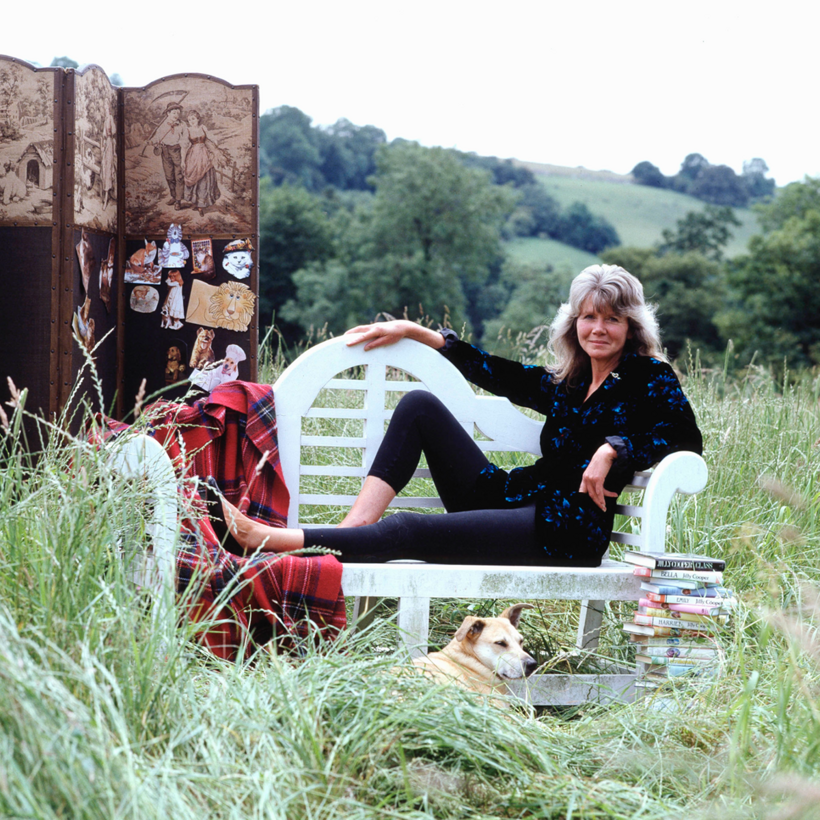Everything changes when you enter the Jillyverse. Everything is warmer somehow, jollier, lovelier, more heavenly. It begins the moment I step out of my taxi at the Chantry, Jilly Cooper’s home of 40 years in Bisley, Gloucestershire. Jilly is there to greet me on the porch: knowing smile, dancing blue eyes, her distinctive white-blonde mane as fluffy as ever, wearing a thick woolen sweater with an embroidered greyhound motif. She’s 86 now and just a tad frail, but she is still a masterful hostess, curious and convivial.
It’s a warm afternoon in the Cotswolds, but the fire in Jilly’s sitting room is roaring. There is a glass of chilled champagne and some smoked salmon blinis waiting for me. And a barrage of compliments. “You’ve got great eyebrows, they’re positively Byronic,” she tells me, somewhat generously. “Umm, thank you,” I stutter. “Oh, I love Byron, wasn’t he heaven?” And we’re off. I’ve been seduced within 90 seconds.

